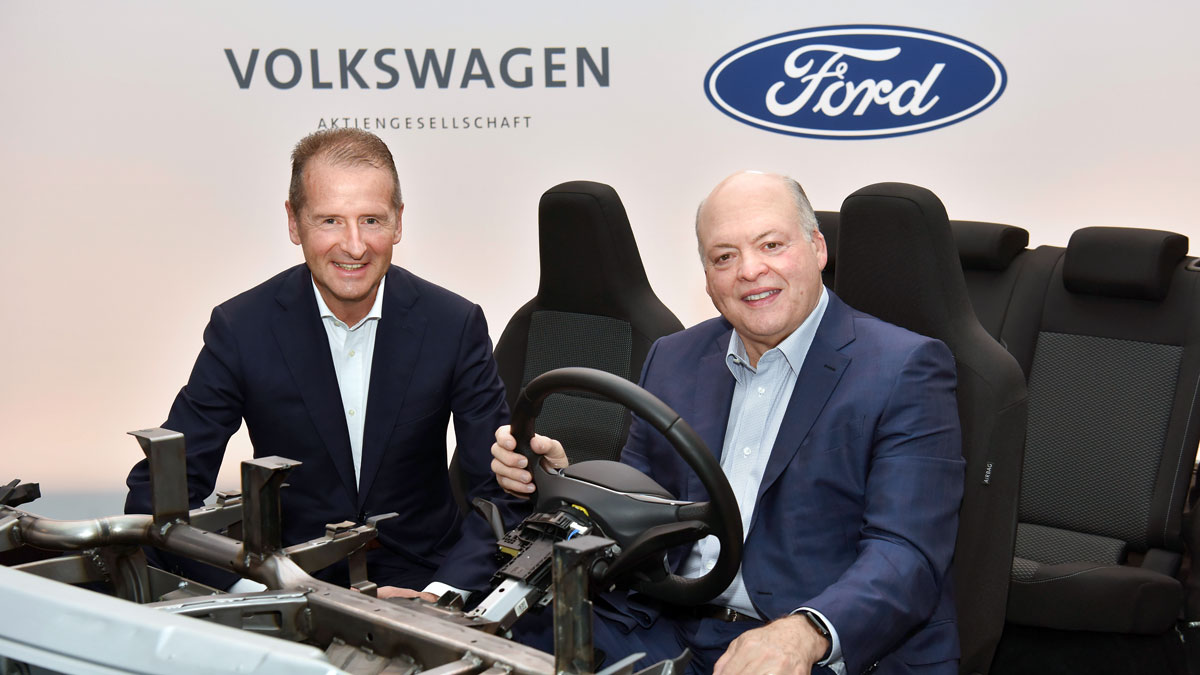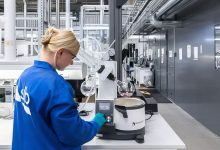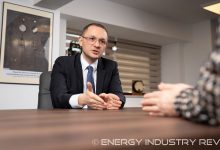Volkswagen and Ford Expanding E-Mobility Partnership: MEB to Electrify Car Manufacturers’ Portfolio Quickly and Cost-effectively
Ford Motor Company and the Volkswagen Group are expanding their e-mobility partnership. Ford plans to produce another electric model for the European market based on the MEB platform. The automaker will also double its planned MEB volume to 1.2 million units over a six-year timeframe. The agreement was signed as part of the strategic alliance between Volkswagen and Ford, which includes e-mobility, commercial vehicles, and autonomous driving. Designed as an open vehicle platform, the MEB (Modular Electric Toolkit) allows car manufacturers to electrify their portfolio quickly and cost-effectively.
“Profitability and speed are now crucial for finally achieving the breakthrough of e-mobility in Europe. We are tackling both together with Ford. Today’s agreement will further accelerate the electrification of the two companies. This is also proof of the strengths of the MEB, which provides a unique package of high-tech, competitive costs and speed in implementing projects. The electric platform is thus the ideal solution for companies looking to speed up their electrification,” Thomas Schmall, Volkswagen Group Board of Management member for Technology and CEO of Volkswagen Group Components, said.
The first Ford model to use the MEB will be an all-electric crossover. It is expected to roll off the assembly line at the Ford Electrification Center in Cologne from 2023 and will give a further push to the automaker’s e-mobility strategy. Ford had originally planned just one model based on MEB with a total volume of around 600,000 units. The company has not yet released any details about the second planned model.
“Our strategic alliance with Volkswagen is an important element of Ford’s commitment to offer an all-electric range of vehicles that are uniquely Ford and designed to meet the mobility needs of a modern Europe that is leading the fight against climate change,” Stuart Rowley, Chair of Ford of Europe, added.
For Volkswagen, expanding the collaboration with Ford will take it one step closer to becoming a platform supplier for electric vehicles as a further pillar in addition to the core business. The MEB platform, which can be used by various brands and manufacturers, already provides the technology base for ten electric models from five brands. Used to build approximately 300,000 units in 2021, it is one of the leading electric platforms worldwide.
The MEB offers a high level of competitiveness while providing considerable freedom in design and model development. It covers a wide range of segments and vehicle types, from compact vehicles up to SUVs and vans. The most recent model based on the MEB is the Volkswagen ID. Buzz, which celebrated its world premiere last week. The MEB also offers a much more competitive cost base compared to other electric vehicles due to the utilization of economies of scale worldwide. It is mainly manufactured at the German locations of Volkswagen Group Components in Braunschweig, Kassel, and Salzgitter.
To help achieve the breakthrough in e-mobility worldwide, Volkswagen shares the MEB and other Group platforms with partners. The newly created business unit ‘Platform Business’ is responsible for these partnerships. Volkswagen’s future platform SSP will also be shared with partners; the use by various brands and manufacturers is already being taken into account in development from the outset.
Background
In June 2020, Ford Motor Company and Volkswagen AG signed agreements that expand their global alliance to meet rapidly evolving needs of their respective customers in Europe and other regions by leveraging complementary strengths in midsize pickup trucks and commercial and electric vehicles.
The companies expect the alliance to enhance ownership experiences for current and future customers by more rapidly innovating vehicle offerings, incorporating relevant new technologies, delivering better utility, and offering more model choices. They anticipate continued growth in global industry demand for commercial vehicles and for high-performing electric vehicles to add valuable scale to their individual product portfolios.
The alliance is set to:
- Produce a medium pickup truck engineered and built by Ford, for sale by Volkswagen as the Amarok starting in 2022 within the Volkswagen Commercial Vehicles lineup
- Further strengthen the commercial-vehicles businesses of both companies as early as 2021 – with a city delivery van based on the latest Caddy model, developed, and built by Volkswagen Commercial Vehicles and later a 1-ton cargo van created by Ford, and
- Lead to a highly differentiated Ford electric vehicle for Europe by 2023 built on Volkswagen’s Modular Electric Drive, or MEB, toolkit, expanding on Ford’s zero-emission capabilities in the region
During the lifecycles of the products, the companies expect to produce up to a combined 8 million of the medium pickup truck and both commercial vans included in the commercial relationships.
Ford and Volkswagen both have strong commercial van and pickup businesses around the world, including popular models such as Ford’s Transit and Ranger and Volkswagen Commercial Vehicle’s Transporter, Crafter, Caddy, and Amarok.
Ford’s use of Volkswagen’s MEB architecture in Europe will represent another cornerstone in Volkswagen’s electric vehicle strategy, and further efforts by both companies to fulfill their commitments to the Paris 2015 Agreement. Volkswagen and Ford plan to explore additional ways to cooperate on electric vehicles.
Over several years starting in 2023, Ford could deliver 600,000 electric vehicles atop the MEB architecture, which is designed to combine space and performance with electric drive.
The Volkswagen/Ford alliance does not include cross-ownership between the companies, which will remain competitors in the marketplace.







